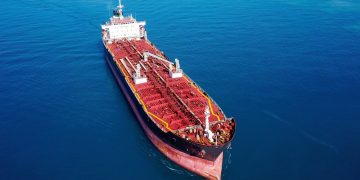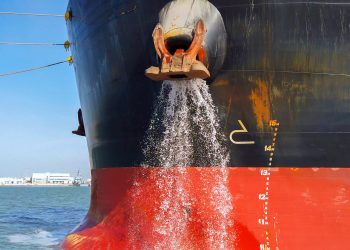Cyprus’ Ministry of Shipping has issued guidance on compliance with the International Ballast Water Management (IBWM) Convention for ships operating in Challenging Water Quality (CWQ) conditions, based on Resolution MEPC.387(81).
Challenging Water Quality Conditions refers to ambient uptake water with quality parameters (including but not limited to high total suspended solids or turbidity) that cause a properly installed, maintained, and operated type-approved BWMS to be temporarily inoperable due to operational limitations or inability to meet operational demand. Temperature and salinity are not parameters that define CWQ.
Pre-emptive bypass may be conducted only after the written consent of this Administration since water quality conditions may vary by precise location, current sea tide, weather, or sea conditions. In cases where pre-emptive bypass is intended to be undertaken, an application should be filed with this Administration using the appropriate form well in advance, and a relevant dispensation letter should be granted under specific provisions to ensure that the ballast water operation does not impair or damage the environment, human health, property, or resources of the coastal State.
- Pre-emptive Bypass: A bypass of the BWMS, prior to or during a ballasting operation, in anticipation of reaching an operational limitation or encountering inability to meet operational demand.
- Re-active Bypass: A bypass of the BWMS during a ballasting operation upon reaching an operational limitation or encountering inability to meet operational.
The provisions for granting our approval may include, among others, the following:
- The Port State authorities shall be notified by the Master of the intention to override the Ballast Water Treatment Plant.
- The Master should take all necessary actions considering the provisions of Resolution MEPC.387(81) – Interim Guidance on the Application of the BWM Convention to Ships Operating in Challenging Water Quality.
- The Master, having loaded the minimum volume of ballast water, upon departure from the port where overriding took place, proceeds to the first suitable location for the replacement of ballast water in each contaminated tank through ballast water exchange (in accordance with the operational and safety provisions of the BWM plan / Reg. B-4 and 0-1), flushing and treatment (in accordance with D-2 Standards), and any instructions received from the Port State authorities.
- All operations shall be recorded in the Ballast Water Management Record
- The authorities of the next port of call shall be notified of the overriding of the Ballast Water Treatment Plant at the previous port.
Furthermore, if, during ballast operation, the BWMS reaches an operational limitation or encounters an inability to meet operational demand, a reactive bypass of the BWMS may be undertaken by the Master without consulting this Administration, provided that the above provisions (1 to 5) are followed.


































































